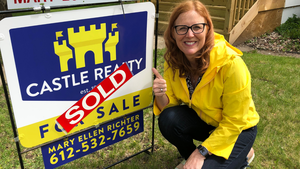Getting outbid on an offer is one of the most frustrating experiences for buyers. You don’t want to make a ridiculously high offer right away, but you also don’t want to be turned down as soon as a better offer comes along. If you’re struggling to make competitive offers in a hot real estate market, an escalation clause might be your secret to success.
An escalation clause allows you to raise your offer in the event that the seller receives a higher bid. This strategy works well in some situations and can be unwise in others, so it’s important to weigh the pros and cons carefully. If you’re trying to purchase a home in a competitive market, you should understand what an escalation clause is, what it includes, and when you should use one.

What Is an Escalation Clause?
An escalation clause is an addendum to your offer that promises you’ll raise your price if the seller receives a higher offer. This allows you to stay in the running in a competitive real estate market without needing to make your highest bid right at the beginning of negotiations.
The clause usually states exactly how much above the competing offer you’ll go. In many cases, the new bid will exceed the competing offer by $1,000 or $5,000. You and your agent can set any increment you want, though. The clause also includes a cap, which is the highest total amount you’re willing to pay. In most cases, the written escalation clause will specify that the competing offer must be a “bona fide offer,” which means it’s a genuine and provable bid. This prevents sellers from creating fake offers to drive up your offer.
You and your agent might make an offer on a home for $400,000 with an escalation clause stating you’ll pay $5,000 over a competing offer up to $430,000. If the seller accepts your offer and another bid comes in at $410,000, your offer will automatically increase to $415,000. However, if an offer comes in at $440,000, your offer will not increase because it would bring you above your cap.
When to Use an Escalation Clause
Escalation clauses are most commonly used in seller’s markets. When sellers are receiving numerous offers, an escalation clause can make your bid more competitive. You won’t lose out on the home just because someone offered slightly more money.
Escalation clauses can be risky, though, so you and your agent need to think through the decision carefully. You should only include an escalation clause in your offer if you’re truly able to pay the cap stated in the clause. You should also be ready to pay an appraisal gap. After bidding wars, homes often appraise for lower than their sale price, forcing the buyer to pay the difference out of pocket if they want to proceed with the deal.
Sometimes, sellers don’t accept escalation clauses. Before drafting an escalation clause, your agent should consult with the listing agent on the matter. This will prevent you from wasting your time on an offer that will only be denied.

Benefits of Using an Escalation Clause
There are a number of benefits to including an escalation clause in your offer. Escalation clauses can give you a competitive edge in a hot market. Many buyers feel helpless in a competitive seller’s market because they make offer after offer only to be outbid every time. With an escalation clause, you can stay in the game for longer.
The clause gives you more flexibility in your offer, too. You don’t have to start with an excessively high offer just to beat the competition. If the seller accepts your offer and no higher offers come in, you get to maintain your original price.
Many buyers appreciate the peace of mind that they get from including an escalation clause in their offer. It’s frustrating to have your offers be outbid repeatedly, but the escalation clause gives you some leeway while allowing you to avoid the stress of a bidding war. When your counter offers are built into your original offer with the escalation clause, you don’t have to rethink and rewrite your offer over and over again.
The cap in the escalation clause serves a valuable purpose when negotiating, too. Emotions can get heightened during a bidding war, and buyers sometimes make extremely high offers that they later regret. By setting a cap in your original offer, you avoid overpaying on impulse.
An escalation clause can also make your offer more appealing because it shows the seller you’re serious about the purchase. Sellers don’t want to waste their time on an offer that will fall through. Including an escalation clause communicates that you really want the home and are willing to make a competitive offer.
Drawbacks of Using an Escalation Clause
There are a few downsides to using escalation clauses, which is why you and your agent must be strategic when using them. The biggest disadvantage to an escalation clause is that it reveals to the seller how much you’re willing to pay, which reduces your negotiating power. For example, you may offer $350,000 with an escalation clause that caps out at $400,000. Instead of accepting this offer, the seller could simply make you a counter offer for $400,000.
An escalation clause may cause issues with the appraisal, too. In competitive markets, homes often appraise for lower than their sale prices, so the lender won’t finance the full value of the sale. In this case, you’ll have to make up the difference in cash.

Are Escalation Clauses Good for Sellers?
Escalation clauses have pros and cons for sellers as well. One advantage for sellers is that escalation clauses can help you identify which buyers are highly interested in your home. An offer with an escalation clause may be more reliable than an offer without one.
An escalation clause can streamline the bidding process, too. When higher bids are built into the offer with an escalation clause, you’ll have less back-and-forth communication between yourself and the buyers.
One downside of escalation clauses for sellers is that they reduce your ability to negotiate. If you accept an offer with an escalation clause, you can’t make a counter offer to that buyer. Then, if no higher offers come along, you’re locked into that original price.
In some cases, instead of simplifying the process, escalation clauses can cause more confusion. If you’re in a highly competitive market, you might receive dozens of offers on your home at varying prices. Some may include escalation clauses, and some may not. Now, you and your agent have to figure out which offer is mathematically the best, which can become complicated and stressful.
 .
.
Should I Use an Escalation Clause?
Including an escalation clause does not guarantee that your offer will be accepted. However, this strategy can be valuable if you’re in an extremely competitive real estate market. An escalation clause can give your offer a competitive edge that may be necessary when the seller is receiving dozens of other bids.
If you do include an escalation clause in your offer, you must be able and willing to pay the cap. You and your agent should discuss whether you’re passionate enough about the home to justify the offer and whether you have enough cash to pay an appraisal gap. Like all real estate strategies, escalation clauses have their pros and cons. When used in the right situation, an escalation clause could help you secure your dream home. Because Home is Everything!
Please contact us for further discussion.
Kerber Castle Realty Group


